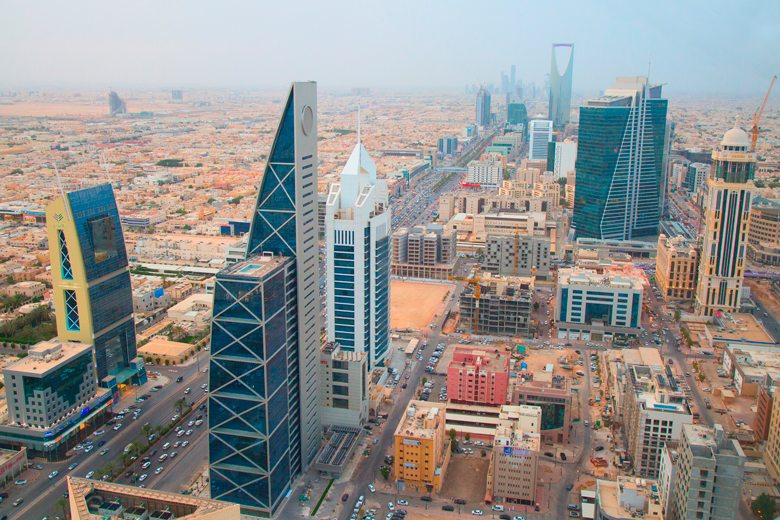

The launch of Delivery Plan 2020 on 25 April by Saudi Arabia’s National Centre for Privatisation (NCP) marks a major milestone for the kingdom’s ambitious Vision 2030 economic reform programme.
The plan sets out the country privatisation agenda for the coming three years and outlines its hopes of raising $10bn in revenues for the government by 2020 through the sale of state assets.
The Delivery Plan 2020 also sets out the first round of targets and metrics for Saudi Arabia’s privatisation programme, including plans for the privatisation of the Ras al-Khair utilities plant, which contains the world’s largest desalination plant as well as other assets including four flour mills, sports clubs and postal services.
“The NCP went through 147 government entities, and looked at 120 initiatives – from privatisation, PPP [public-private partnerships] to corporatisation,” says NCP chief executive officer (CEO) Turki al-Hokail. “Following this – we have committed to five initiatives to privatise state assets, four projects to corporatise state entities and deliver 14 PPP projects by 2020.”
Key asset sale
Established in 2016 to facilitate the reforms laid out in the Vision 2030 plan, the NCP has become one of the most important organisations in the kingdom's economic landscape and Delivery Plan 2020 represents an important step in the kingdom achieving its Vision 2030 goals.
“The privatisation programme is a major part of Vision 2030, with the target for the contribution of the private sector to GDP to increase from [the current] 40 per cent to 65 per cent, " says Al-Hokail. "The delivery plan will get rid of the obstacles that limit opportunities for privatisation."
[caption id="attachment_301712" align="aligncenter" width="225"] National Centre for Privatisation CEO Turki al-Hokail[/caption]
National Centre for Privatisation CEO Turki al-Hokail[/caption]
A key target of the 2020 Delivery Plan is for the privatisation of five state assets to deliver $10bn of proceeds for the government by 2020.
One of the planned privatisations is for the Ras al-Khair cogeneration plant. The Ras al-Khair sale will mark the first element of plans to privatise the Saline Water Conversion Corporation (SWCC), the largest producer of desalinated water in the world.
Other state assets and services earmarked to be to the private sector by 2020 include four flour mills, professional football clubs and parking services.
According to Al-Hokail, the privatisations make take the form of IPOs, full or part sales.
“The privatisation programme is very complex, and as it is transaction-based, it depends on many factors such as market dynamics, appetite of private sector and access to liquidity and funding," he says.
"All of these factors will influence the model they proceed with. There is no one size fits all for the privatisations or PPPs.”
The assets scheduled for corporatisation by 2020 include ports and the King Faisal Medical Centre, which is planned to be switched to a not-for-profit entity.
PPP programme
Perhaps the most ambitious target under the 2020 Delivery Plan is the plan to implement 14 PPP projects across various sectors, from energy to social services such as education and healthcare.
“A new change for Saudi Arabia is increasing the use of partnerships with the private sector through PPP,” says Al-Hokail. “We are planning two PPPs in education, a number of PPPs in healthcare – from primary healthcare facilities and medical cities to radiology and rehabilitation centres. We are also looking at PPPs for major areas of the transportation system.”
A key component of successfully delivering PPP across various sectors is implementing the planned privatisation law, which is currently under discussion.
“We have finished the draft [privatisation] law,” says Al-Hokail. “It will be released within the next three weeks for public consultation, where we will receive feedback and then adapt it and send it to higher authority for approval. We are aiming to have it ready by the end of the year.”
Al-Hokail is keen to stress that the recent revisions of existing legislation and implementation of new laws will also facilitate the integration of the private sector into key sectors of the kingdom’s economy.
“The government has recently issued the insolvency and mortgage laws, and also revisited and issued new company laws,” he explains. “It is also revisiting the foreign investment and government investment laws, all of which are enablers for encouraging more private investment from local, regional and international investors to the economy.”
In addition to setting targets for new projects and state entities to be privatised, the 2020 Delivery Plan also details plans for the NCP’s Privatisation/PPP Innovation Centre, which will play a key role in supporting the various initiatives.
While the planned IPO of Saudi Aramco does not fall under the NCP’s remit, Al-Hokail says that the privatisation centre is the place to go for any investor seeking to participate in the kingdom’s rapid economic transformation.
“Our doors are open. We already have more than 120 employees, and have numerous in-house capabilities – from financial transaction lawyers to an investor relations department to help anyone who wants to take part.”
You might also like...

Contractors win Oman Etihad Rail packages
23 April 2024

Saudi market returns to growth
23 April 2024

Middle East contract awards: March 2024
23 April 2024

Swiss developer appoints Helvetia residences contractor
23 April 2024
A MEED Subscription...
Subscribe or upgrade your current MEED.com package to support your strategic planning with the MENA region’s best source of business information. Proceed to our online shop below to find out more about the features in each package.





